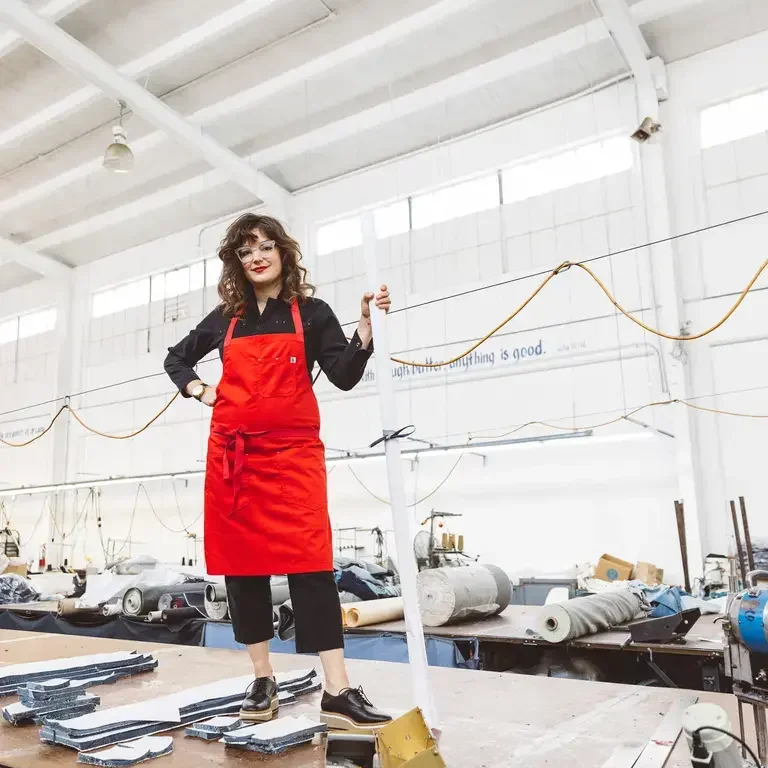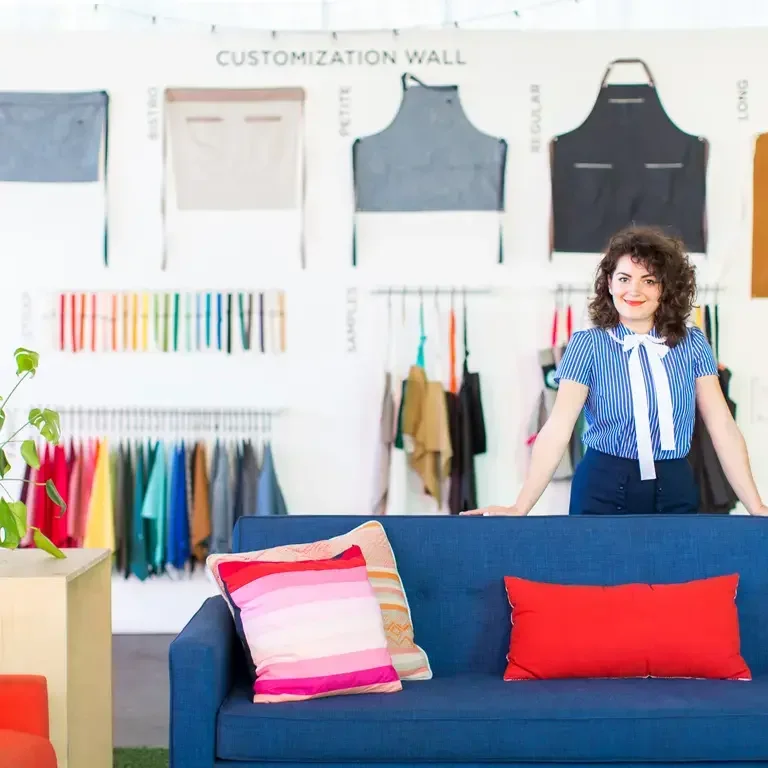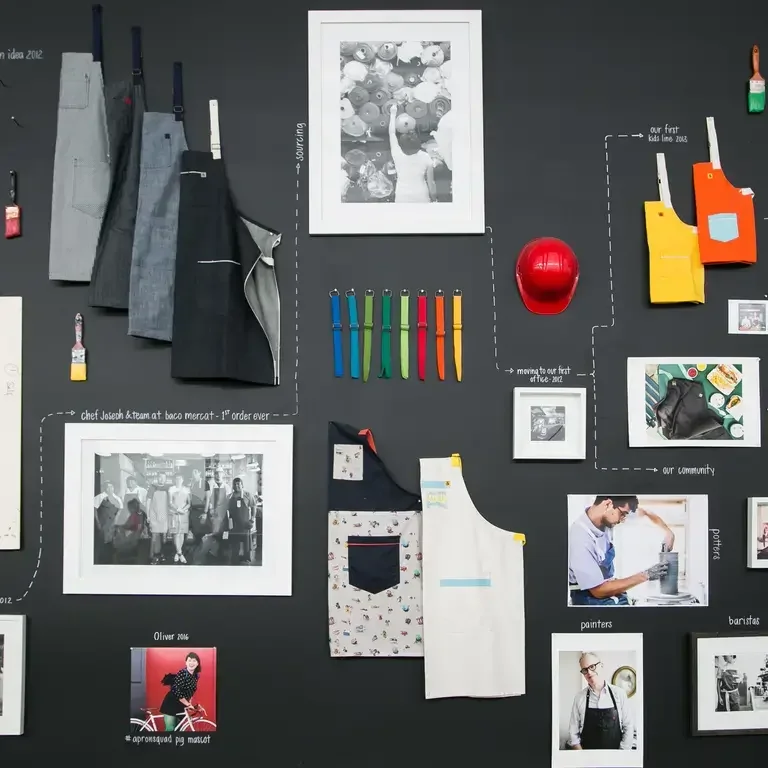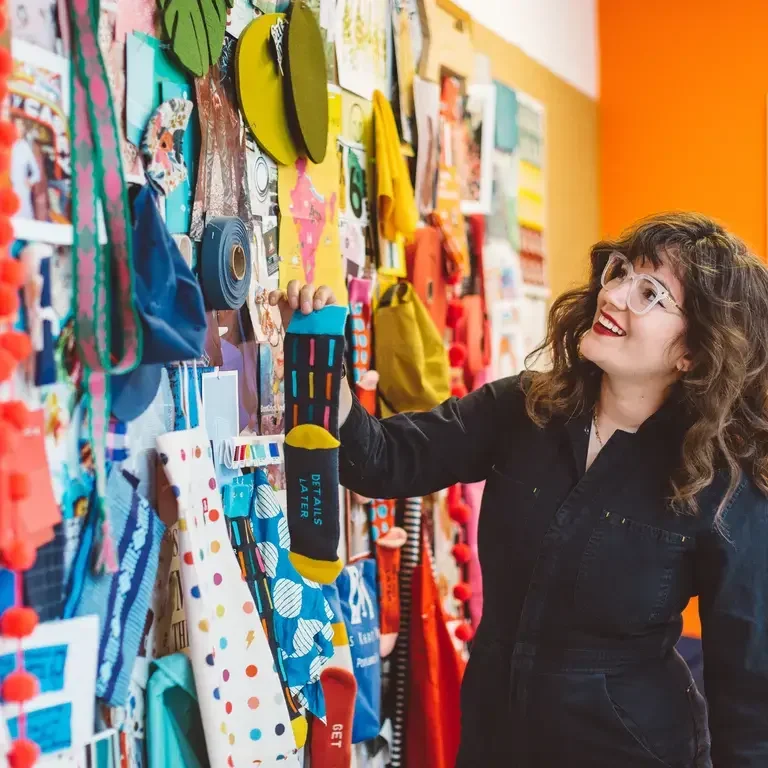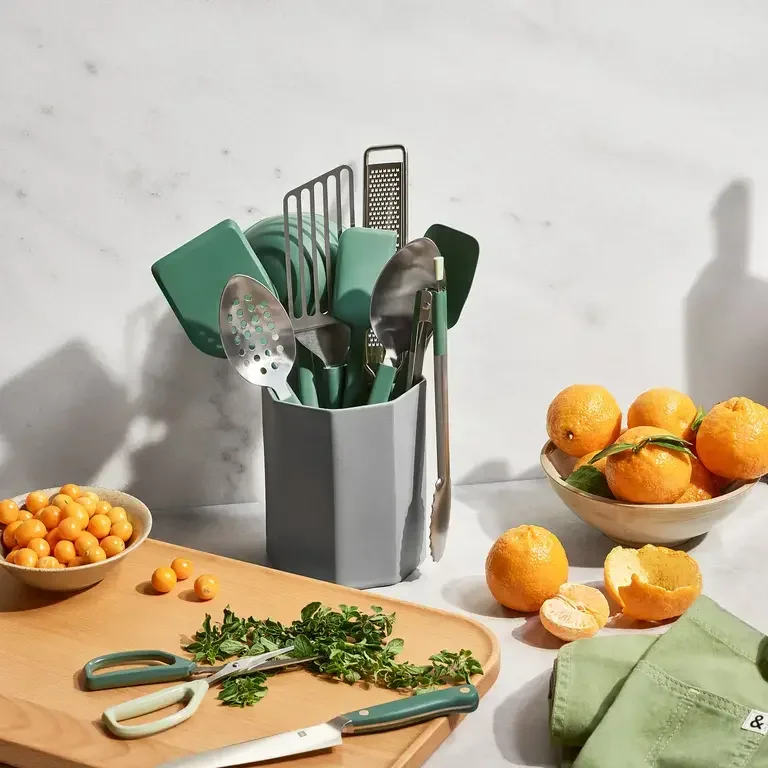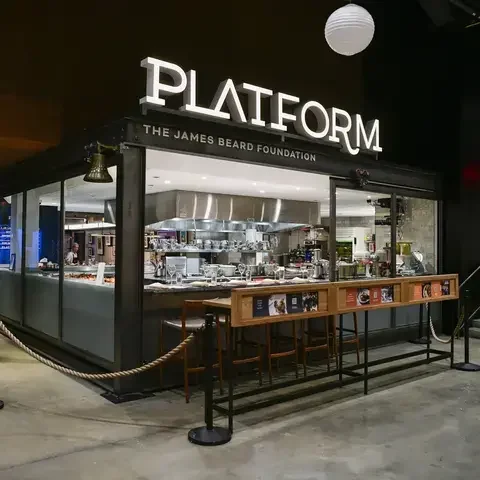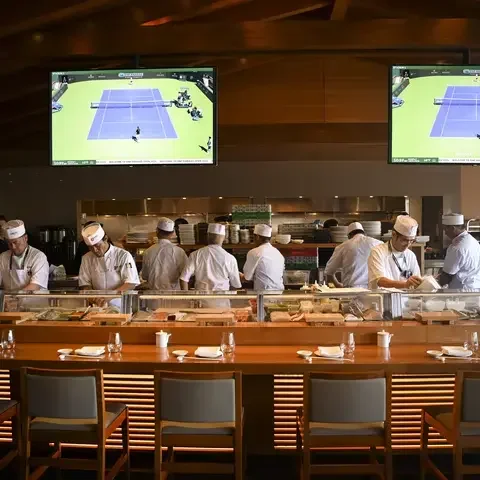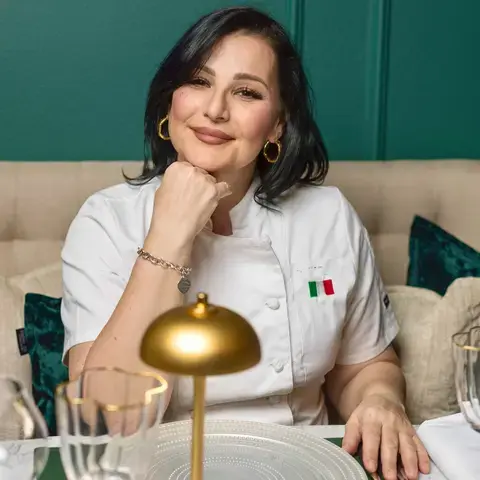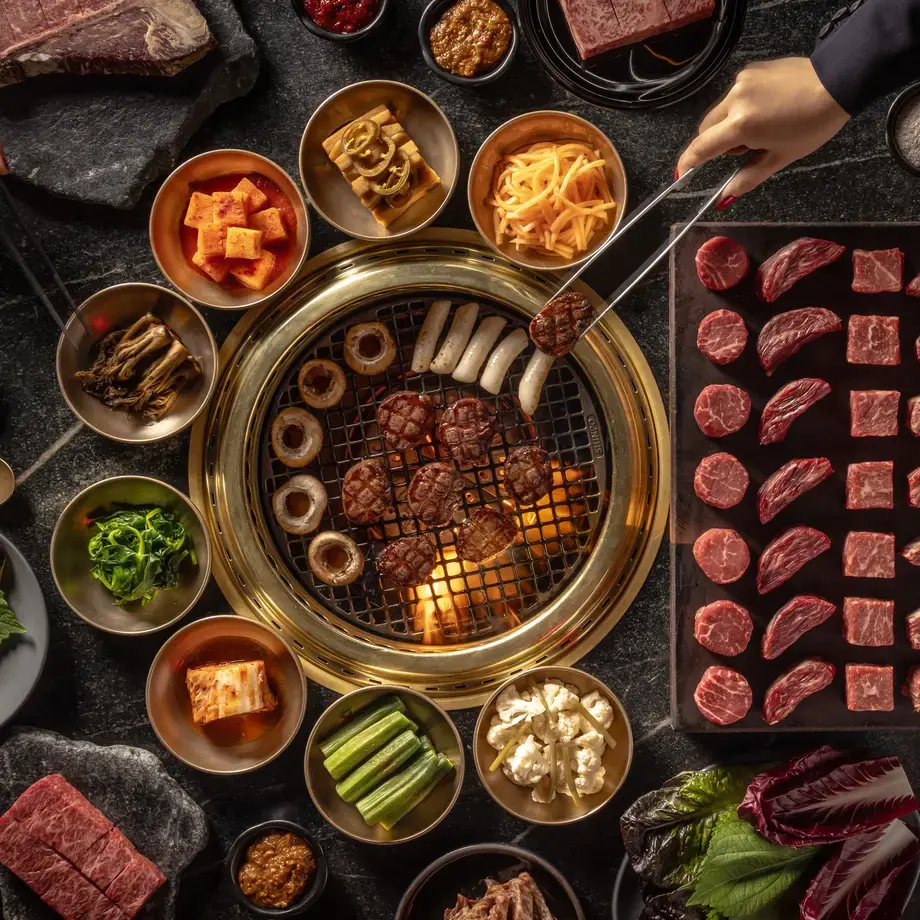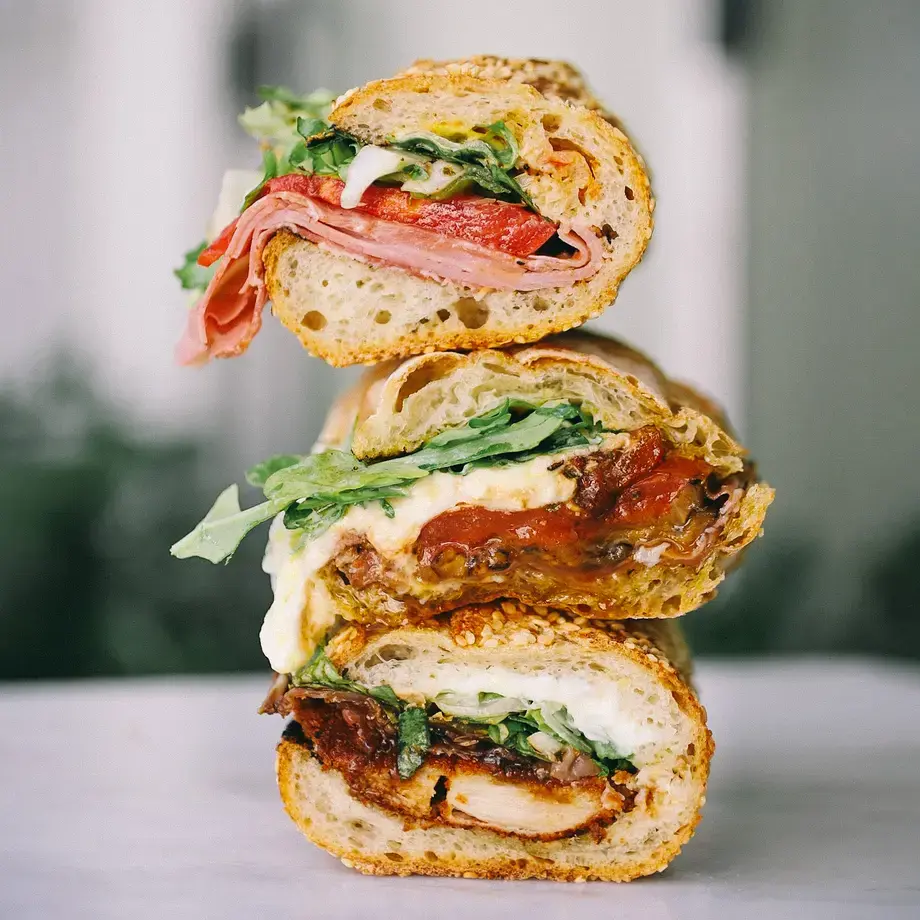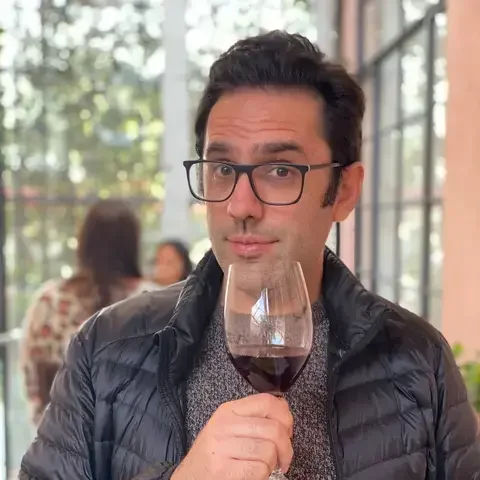It started with a lie.
Not a big one—just the kind of bold, bullshit-on-a-burner that only works if you believe it harder than the person you're saying it to. Ellen Bennett was still working the line at Bäco Mercat in Los Angeles when her chef mentioned, offhandedly, that someone was making aprons for the kitchen.
“That’s me,” she said without hesitation.
It wasn’t. She didn’t even have an apron company. But she would by the time service ended.
That first order—forty aprons—was the start of Hedley & Bennett, a now-iconic culinary gear brand worn by line cooks, Michelin-star chefs, and now, home cooks tuning into her new TV show. But nothing about Bennett’s path was traditional, predictable, or particularly planned. In fact, if there’s one constant in her career, it’s this:
She jumps first. The rest catches up later.
Baptism by Broth: Mexico City, Age 18
At 18, Ellen Bennett didn’t apply to colleges. She boarded a flight to Mexico City with a suitcase, no plan, and a little push from her mom, who thought a change of scenery—and some distance from a boyfriend she didn’t like—might do her daughter good. What was meant to be a one-month visit turned into four years of full immersion.
“I fell so deeply in love with that city and the culture and the vibe and the flavors and the smells and everything that everyone loves about Mexico,” Bennett says. “But circa, you know, 2007.”
She enrolled in culinary school—Centro de Estudios Superiores de San Ángel—and supported herself with a rotation of improbable, perfectly Ellen jobs: lottery announcer, union translator, kitchen assistant at a fonda. The fondas became her informal training grounds—humble restaurants serving a single set lunch to working-class diners. She studied with the grandmas in the back, absorbing the language of real Mexican home cooking.
“Could I afford culinary school in the U.S.? Absolutely not,” she says. “Somehow this indirect road led me to find my way in Mexico.”
For someone who had grown up between two cultures—Swedish-leaning routines in LA and meat-filled weekends with family in northern Mexico—it was a kind of coming home. But it was also hard. She had no car, no friends, no shortcuts. Just instincts and drive.
“Living by yourself when you’re 18 years old in Mexico fucking City is no mother fucking joke,” she says. “It was so goddamn intense… I didn’t have a car. I didn’t have friends. I did everything on public transportation. It was fucking sketchy as balls.”
But she survived. And more than that, she thrived.
“I was building notches on my confidence belt, if you will,” she says. “It was just like, can you do this? Okay, yeah, I did it. Okay. Cool. Can I live in a foreign country? Yes. Can I get jobs when I don’t know anyone? Yes. Okay. Can I get my citizenship? Can I fucking work for ten minutes, work as a lottery announcer, learn how to speak Spanish better? Can I have no accent? Yes, yes, yes, yes.”
By the time she left Mexico, Bennett had a culinary degree, a Mexican passport, multiple jobs, and a life she had fully built from scratch. But that still wasn’t enough. “Complacency,” she says, “was the enemy.”
